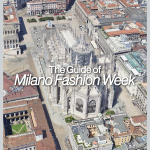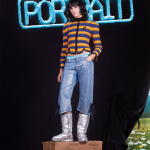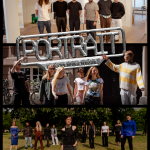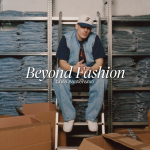
With the rise of e-commerce, how can packaging reduce waste?
From PANGAIA to ASKET, more and more brands are making completely sustainable packaging
April 6th, 2021
Steve Jobs once said: "Packaging can be theatre, it can create a story.”
Last year, due to the health emergency, companies were forced to close down their stores, making consumers rethink the purchasing system and companies design and adopt a non-store retailing model. E-commerce platforms' sales rose in the background of the traditional retail system's fall. Adopting the digital mode of working to meet the steep increase in home deliveries, making online sales became a necessity rather than a choice. To replace the store experience and implement it in preserving the brand identity while selling products online, certain brands communicated their DNAs by experimenting with packaging. While some give attention to the number of wrappers and ribbons, others think towards minimizing the quantity of plastic and non-degradable materials and producing either biodegradable or compostable or less-harmful packaging.
What comes with a single package on average?: a barcode sticker, hangtag, welcome card, return instructions, polybag (sometimes the product is wrapped with a wrapping paper and joint with a sticker), shipping label, box, and a box sticker. Not much can be compromised to ensure that the brand and consumer's communication is all accurately set while following the ethical packaging guidelines. Then, what should be prioritized to add to packaging a secondary purpose?
PANGAIA, as the name suggests - PAN (all-inclusive) and GAIA (Mother Nature) - is a global collective of creatives that aims at exploring the framework of circular resources, climate action, and biodiversity in search of designing environmentally-friendly products. Through a collaboration with an Israeli compostable packaging company, TIPA®, the PANGAIA has managed to save the planet from 39.2 tons of polluting plastic and 1.5 million polybags. PANGAIA's team is creating products from organic cotton, engineered seaweed fibre, environmentally conscious dyes with low water waste, and recycled materials. Replacing goose down with FLWRDWN™ made from dried flowers and producing sneakers using grape leather, Pangaia then wraps their products in TIPA® commercially compostable resealable bags.
Another brand that shares the same value of tackling the packaging waste issue is ASKET, a Stockholm-based fashion startup. ASKET suggests a familiar hierarchy of approaching the packaging design, which bases on removing, reducing, reusing, and recycling. The limitations of the brand's research revealed that the reusing model lacks appropriate packaging solutions, and recycled products still end up in landfills. The cutting edge between these two appeared to balance the need to remove and reduce the number of resources used. Hence, the brand has replaced 35% of their boxes with lightweight mailers and merged the welcome card with the return instruction paper, reducing the material usage by 50%. When facing the packaging material selection and the logistics during transportation, ASKET emphasizes the Environmental Impact, Operations, and Cost. With the reduction in material input, ASKET calls other brands to consider the supplier selection that demonstrates certified production and the communication to educate the targeted consumer. Commercial-wise, the savings of the cost per average order has been reduced by 43% due to merging the efficient bottom line, customer experience, and environmentally-friendly production.
As the number of sustainable packaging brands rises, luxury brands smoothly manage to take over the wave and suggest their own ethical packaging alternatives. In early 2019, Burberry launched its sustainable packaging, made from 58 million recycled coffee cups. The same year Stella McCartney began working with a TIPA manufacturer to produce bio-based packaging. The Estée Lauder Companies, in contrast, were an early member of Sustainable Packaging Coalition, producing ethical packages; and the list of luxury brands choosing sustainable packaging is growing. In November 2020, Gucci launched its new paper bags with green uncoated paper, black torchon 100% recycled polyester handles and organic cotton ribbon.
The e-commerce platforms also lead in joining the movement towards circularity, considering sustainable packaging as a competitive advantage. According to a study by McKinsey, over 70% of customers would pay more for a ‘green premium’ product if it was wrapped in eco-friendly packaging. Farfetch uses recyclable packaging, with paper from recycled materials and sustainably managed forests. To ensure that the platform drives its carbon footprint to zero, it experiments with the packaging sizes and the route efficiency during shipments. It has shifted to the Forest Stewardship Council (FSC) certified materials, minimizing the amount of paper and tape used in the production. Another e-commerce that strives towards eco-packaging and sources its materials in compliance with the FSC is YOOX NET-A-PORTER GROUP which has created ECOBOX, consisting of a mix of recycled and virgin paper with a piece of information inside of the box on how to reuse or recycle responsibly. "Today we cannot address sustainability in packaging without talking about circular economy and recyclability of products,” says Michele Bondani, owner of Packaging in Italy, adding “Even today there is a lot of confusion on the market, consumers are confused and must therefore be educated towards the best truly sustainable solutions.” In October 2019, Zalando collaborated with RePack piloted reusable packaging for at least 20,000 customers in Finland, Denmark, Norway, and Sweden. The platform plans to eliminate single-use plastic by the end of 2023.
Given the growing attention to environmental sustainability issues, an interest shared by brands and consumers alike, packaging and its impact on the planet will be an important ground to work on to implement truly ethical and circular practices.
















































































